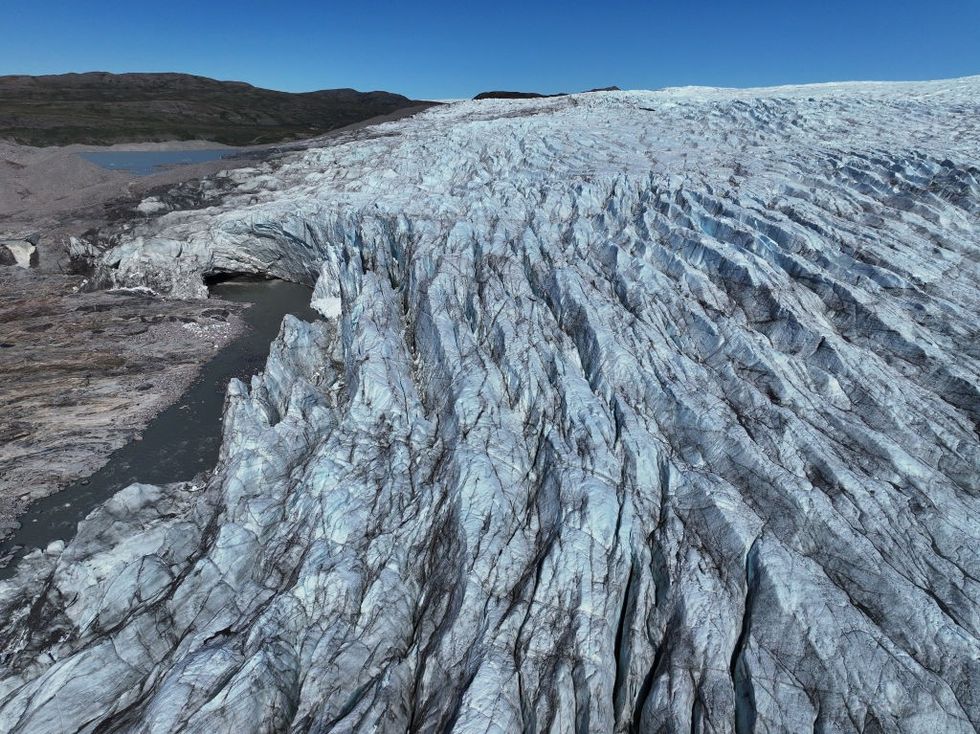WATCH: Nana Akua slams Ed Miliband's climate hypocrisy
GB News
Scientists are increasingly concerned that further action may be needed to prevent climate change
Don't Miss
Most Read
Trending on GB News
Britain is set to approve funding of up to £50million for outdoor experiments to dim sunlight as part of efforts to combat runaway climate change.
The Advanced Research and Invention Agency (Aria) will announce the funded projects within weeks, making Britain one of the world's biggest funders of geoengineering research.
Professor Mark Symes, Aria's programme director, confirmed there would be "small controlled outdoor experiments on particular approaches".
The controversial technology aims to reflect sunlight back into space, potentially providing a temporary brake on rising global temperatures while emissions reduction efforts continue.

Scientists are looking to reduce the carbon in the air
Getty
The experiments could include injecting aerosols into the atmosphere or brightening clouds to reflect sunshine away from Earth.
One major area of research is Sunlight Reflection Methods (SRM), which includes Stratospheric Aerosol Injection, where tiny particles are released into the stratosphere.
Another potential solution is Marine Cloud Brightening, in which ships would spray sea-salt particles into the sky to enhance cloud reflectivity.
Other ideas include seeding cirrus clouds to allow more heat to escape into space, as these high-altitude clouds currently trap heat like a blanket.
LATEST DEVELOPMENTS:

Scientists say seeding cirrus clouds would help combat climate change
Getty
Aria has emphasised that all experiments will be "safe by design" with strict requirements on duration and reversibility. Scientists have observed evidence supporting these approaches in real-world scenarios.
Prof Jim Haywood of the University of Exeter noted that ship emissions "lead to bright lines in clouds over the ocean".
He also cited a 2014 volcanic eruption in Iceland that "spilled out a lot of sulphur dioxide", which "brightens clouds and cools the planet".
Prof Symes emphasised the need for physical data, saying: "One of the missing pieces in this debate was physical data from the real world. Models can only tell us so much."
The experiments aim to provide "critical" data needed to properly assess the technology's potential. Geoengineering has proven controversial, with critics arguing it could bring damaging knock-on effects and distract from emissions reduction efforts.
Some senior scientists recently called solar radiation management a "dangerous distraction" from cutting emissions, describing it as "barking mad" and akin to "treating cancer with aspirin".
There are concerns it could shift rainfall patterns vital for food production or have other unintended consequences. However, scientists are increasingly worried that carbon dioxide levels aren't falling fast enough to prevent catastrophic warming.
The looming threat of climate tipping points, such as the collapse of vital ocean currents or giant ice sheets, has driven increased interest in these approaches.

The Russell Glacier descends from the Greenland Ice Sheet
Getty
Dr Sebastian Eastham from Imperial College London pointed out that sulphur in jet fuel already causes "a small cooling effect" when emitted into the stratosphere.
"This points to the fact that it's theoretically possible (to cool the planet) with current day technology but there are many practical questions that would need to be answered," he said.
Experts believe successful experiments could be scaled up and implemented within a decade.
Alongside outdoor trials, Aria will fund modelling studies, indoor tests, climate monitoring and research into public attitudes towards geoengineering.
There is currently no international agreement governing major geoengineering schemes, with experts calling for deployment moratoriums.








